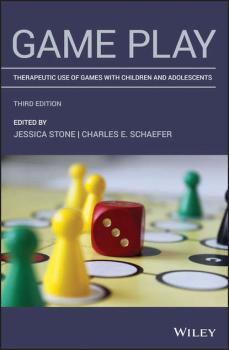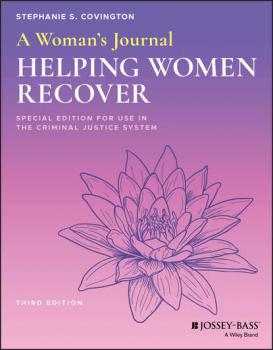Общая психология
Различные книги в жанре Общая психологияТоксикомамка
Конфликт отцов и детей – это проблема старая, как мир. Но что же делать, если родители сознательно вредят своему ребенку, прикрываясь воспитанием и благими намерениями? Содержит нецензурную брань.
Я понимаю тебя без слов. Как читать людей по жестам и мимике
Словами можно передать лишь половину информации. Жесты, мимика, поза говорят о человеке едва ли не больше, чем он сам. С помощью языка тела легко добиться желаемого результата в переговорах, «читая оппонента», как открытую книгу. Правильная трансляция невербальных сигналов поможет вам одержать победу в тендере, выиграть выборы, получить работу мечты, добиться желаемой должности и повлиять на людей, которым вы хотите доказать свою точку зрения.
LEARN TO LOVE
This book encompasses twenty-five years of professional experience and answers to the most burning questions. In a light and easy manner, the author tells about the search for a perfect partner as well as building and maintaining a relationship While reading this book, you will learn the following: •30 answers to the most important and interesting questions about love and relationships. •How to restore desire and passion when love is “paused”. •How to overcome a crisis in your relationship and move onto a new level of intimacy. •The main mistakes of women in a relationship. •How not to swallow the bait of “the wrong kind of men”. •How to make him interested in you and become his main priority. •How to stop being afraid and create an emotionally close relationship full of love. •How to recognize his true feelings towards you. •Who are womanizers? Can anyone be faithful?
Простая конфликтология
Приветствую вас дорогие читатели! Рад представить вам мою новую книгу "Простая конфликтология". В ней я рассматриваю основные виды конфликтов и возможные причины их устранения. Желаю приятного прочтения.
Le Cyber-Harcèlement
Le cyber-harcèlement est une forme moderne de harcèlement prenant pour cible n'importe quel individu, dont la situation devient particulièrement préoccupante quant il s'agit de mineurs. Dans ce guide de poche, nous présentons les réponses aux questions les plus importantes sur ce sujet que tout parent ayant des enfants en âge de scolarité doit garder à l’esprit. Qu’est-ce que le cyber-harcèlement ? Comment le cyber-harcèlement affecte-t-il ? Peut-on prévenir le cyber-harcèlement ? Et surtout, que faire si notre enfant est victime de cyber-harcèlement ? Découvrez toutes les clés du cyber-harcèlement grâce à la comparution des résultats des dernières recherches dans le domaine psychologique sur le sujet.
Game Play
The essential guide to game play therapy for mental health practitioners The revised and updated third edition of Game Play Therapy offers psychologists and psychiatrists a guide to game play therapy’s theoretical foundations and contains the practical applications that are appropriate for children and adolescents. Game playing has proven to invoke more goal-directed behavior, has the benefit of interpersonal interaction, and can perform a significant role in the adaptation to one's environment. With contributions from noted experts in the field, the third edition contains information on the time-tested, classic games and the most recent innovations and advances in game play approaches. Game Play Therapy’s revised third edition (like the previous editions) continues to fill a gap in the literature by offering mental health practitioners the information needed to understand why and how to use this intervention effectively. The contributors offer advice for choosing the most useful games from the more than 700 now available and describe the fundamentals of administering the games. This important updated book: Contains material on the recent advances in the field including information on electronic games and disorder-specific games Includes illustrative case studies that explore the process of game therapy Reviews the basics of the underlying principles and applications of game therapy Offers a wide-range of games with empirical evidence of the effectiveness of game therapy Written for psychologists, psychiatrists, and other mental health clinicians, the revised third edition of Game Play Therapy offers a guide that shows how to apply game therapy techniques to promote socialization, encourage the development of identity and self-esteem, and help individuals master anxiety.
A Woman's Journal
The latest, fully-revised and updated edition of classic and best-selling work in the field Since it was first published in 1999, Helping Women Recover has set the standard for best practice in the field of women's treatment. Helping Women Recover is a manualized treatment intervention based on Dr. Covington's Women's Integrated Treatment (WIT) model—offering a program developed to meet the unique needs of women addicted to alcohol, other drugs, and those with co-occurring disorders. Included in SAMHSA's National Registry of Evidence-based Programs and Practices, The Helping Women Recover program offers counselors, mental health professionals, and program administrators the tools they need to implement a gender-responsive, trauma-informed treatment program in group settings or with individual women in criminal justice settings. Now in its third edition, this binder set including both a facilitator's guide and a hands on participant's journal, has been updated with new material on opioid addictions, how to become trauma-informed and gender-responsive, LGBTQ issues, and more. Updated references, further reading suggestions, and a chapter for facilitators which includes the challenges of working in the criminal justice system help practitioners to effectively implement the program in daily practice. A vital tool for all mental health and addiction treatment professionals, Helping Women Recover : Draws from the most up-to-date theory and practical applications in the fields of addiction and trauma Covers the historical background and fundamental principles of gender-responsive services Provides guidance for facilitating an effective woman's treatment program Offers real-world insights on the role of the facilitator Includes an appendix of additional recovery resources such as The Sixteen Steps for Discovery & Empowerment and Women for Sobriety New Life Program Acceptance Statements Helping Women Recover is essential for mental health and addiction treatment professionals including counselors, therapists, social workers, psychologists, and psychiatrists who work with women in HWR is essential for anyone providing services to women in criminal justice settings.
Essentials of Treatment Planning
Essentials of Treatment Planning, Second Edition is an updated and easy-to-use guide to the development and use of treatment plans for behavioral health care patients. The book incorporates current research and developments in treatment planning that have occurred since the publication of the first edition. Designed as a nuts-and-bolts guide, the book covers essential material such as the role and benefits of treatment planning in a clinical setting, approaches for conducting comprehensive patient assessments, the use of assessment information to develop individual treatment plans, and strategies for ongoing evaluations and revisions of treatment plans. Essentials of Treatment Planning, Second Edition explores how to develop and use treatment plans to strengthen the entire treatment process. An important component in documentation, accurate treatment plans provide myriad benefits, including: meeting the accountability criteria of insurers and behavioral health care organizations, enhancing efficient coordination of care with other health care professionals, and facilitating better communication with outside reviewers. In addition, behavioral health professionals—psychologists, psychiatrists, clinical social workers, mental health and substance use counselors, and others—may gain the added security of protection from certain types of litigation. As part of the Essentials of Mental Health Practice series , the second edition of Essentials of Treatment Planning contains the information busy behavioral health professionals need to practice knowledgeably, efficiently, and ethically in today's behavioral health care environment. Each chapter features numerous callout boxes highlighting key concepts, bulleted points, and extensive illustrative material, as well as «Test Yourself» questions that help gauge and reinforce your grasp of the information covered.
The Wiley Handbook on What Works for Offenders with Intellectual and Developmental Disabilities
Brings together the growing amount of evidence on the assessment and treatment of offenders with intellectual and developmental disabilities. Written by a team of international experts, this comprehensive and informative book provides a contemporary picture of evidence-based practice for offenders with intellectual and developmental disabilities. By adopting a scientist-practitioner position directed at an academic level with practitioner guidelines, it provides a valuable reference source for professionals from allied disciplines who are using or seeking to apply research for this client group. The Wiley Handbook of What Works for Offenders with Intellectual and Developmental Disabilities: An Evidence Based Approach to Theory, Assessment and Treatment is divided into five sections: Introduction, Phenotypes & Genotypes and Offending Behavior, Validated Assessments, Treatment, and Conclusions. The Introduction offers an overview of the entire book and is followed by a second overview covering the ethics of evidence-based practice. After that come chapters on protecting the rights of people with intellectual disabilities in correctional settings, and behavioral and cognitive phenotypes in genetic disorders associated with offending. The third part of the book studies the assessment of individuals with anger and violence issues, inappropriate sexual behavior, alcohol abuse, and emotional difficulties. Next comes a section that looks how to offenders can be treated. The final section discusses future directions and requirements for offenders with intellectual and developmental disabilities. Provides an overview of the ethical challenges and issues faced by those who work with intellectually and developmentally disabled offenders Focuses on proof of treatment effectiveness and validation of assessment methods to direct readers toward «What Works» Features contributions from authors across the entire English-speaking world including the UK, US, Canada, Australia, and New Zealand The Wiley Handbook of What Works for Offenders with Intellectual and Developmental Disabilities: An Evidence Based Approach to Theory, Assessment and Treatment will appeal to all who work in the field of offenders with intellectual and developmental disabilities, including nursing staff, social workers and probation officers, medical and psychology staff, and more.









